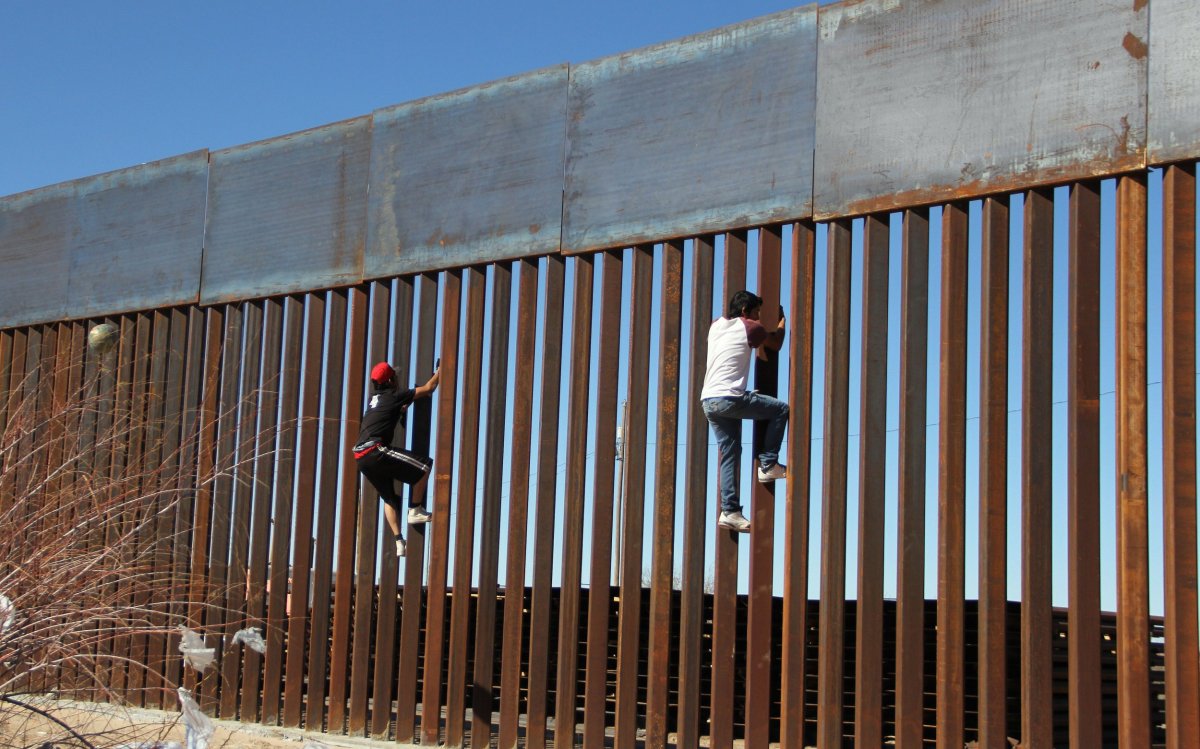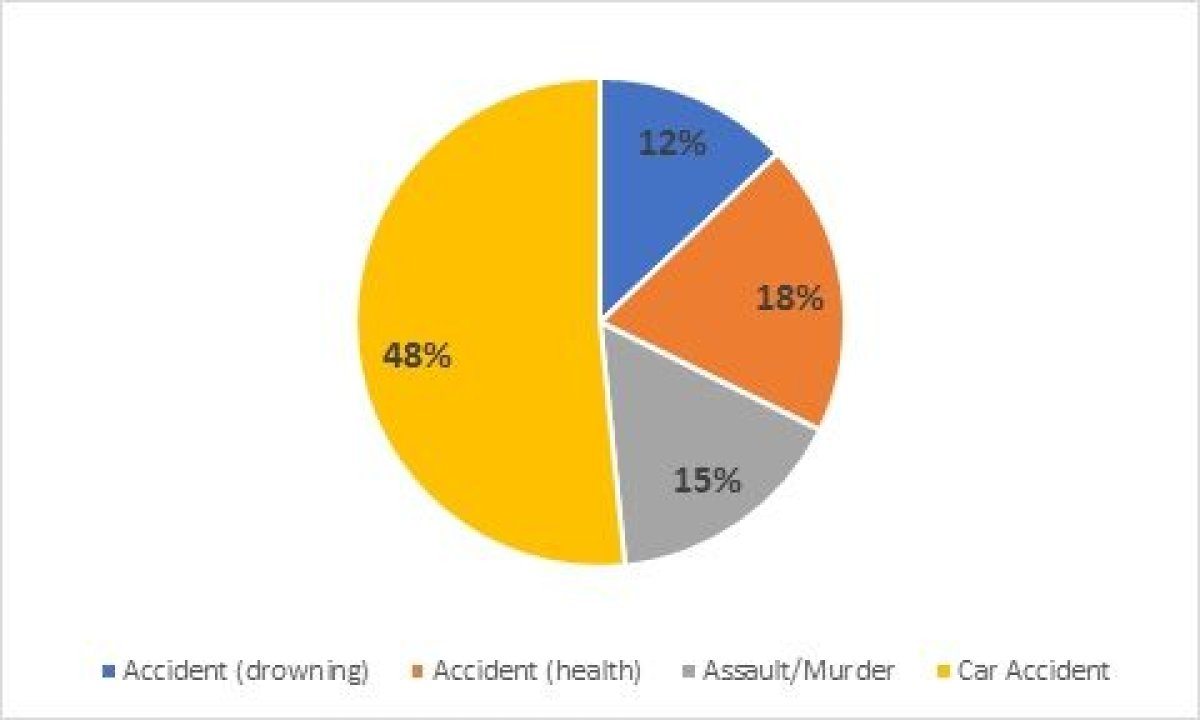This article first appeared on the Cato Institute site.
Border Patrol agent Rogelio Martinez, 36, was recently laid to rest after dying in the line of duty.
The cause of his death is a mystery and the government has released few details.
A spokesman for the FBI said that Martinez was "not fired upon" but Governor Greg Abbott (R-TX) said Martinez was killed in "an attack."
A spokesperson for the National Border Patrol Council, a government union that represents Border Patrol agents, said that Martinez may have been bludgeoned to death by rocks. Another source claims that Martinez may have perished because of injuries he sustained in a fall down a culvert.
More information will hopefully come forward in the coming days and weeks to clear up this mystery. Martinez's untimely death is a tragedy regardless of the actual cause.
Many politicians, including President Trump, cited Martinez's death as a reason for a border wall and more spending on security, but policy should rarely (if ever) be changed as a result of single incidents like these. Instead, properly analyzed data about how many Border Patrol agents are murdered in the line of duty should be a starting point so that we can at least see how deadly the occupation actually is.
This information is unreported in news stories on Martinez's death and I couldn't find it in an online search, so I estimated it from publicly available data.
The government records all Border Patrol agent and Customs officer deaths in the line of duty. I went through the deaths since 2003 and excluded Customs officers. That left 33 Border Patrol agent deaths since the formation of Customs and Border Protection (CBP) in 2003 through November 19, 2017.
More agents died in 2012 but 2004 had the highest rate of agent deaths at 0.028 percent of all Border Patrol agents or one out of every 3,606 agents on duty that year. From 2003 through 2017, the chance of a Border Patrol agent dying in the line of duty was about one in 7,968 per year.

I determined the cause of death for each Border Patrol agent from the online blurbs on CBP's website. About half of all agents who died on duty from 2003 through 2017 died in car accidents. About 15 percent died because of assault or murder and 18 percent due to other health-related accidents such as heart attacks or heat stroke.
Most surprising, 12 percent died from drowning in accidents.
I counted the death of Border Patrol agent Luis Aguilar as murder because a car driven by a suspected smuggler struck him. I counted the death of Border Patrol agent Nicholas D. Greenig as caused by a car accident because he struck a large animal with his patrol car.
Agent Javier Vega Jr. was murdered while off duty but I counted his death as a result of murder because the CBP website records him as dying in the line of duty for this reason:
On September 20, 2016, it was determined that, in light of information identified during the intensive investigation completed by the Willacy County Sheriff's Department, Agent Vega's actions were indicative of his law enforcement training and that he instinctively reacted, placing himself in harm's way to stop a criminal act and protect the lives of others. His death was later determined to have been in the line of duty.
Source: Customs and Border Protection.On its surface, the death of agent Martinez seems to confirm the perception that Border Patrol agents have a dangerous job. But the danger of an occupation must be gauged in relation to the danger of other occupations or populations.
Figure 1
Border Patrol Agent Cause of Death

About one in 7,968 Border Patrol agents died per year from 2003 through 2017. That compares favorably to all law enforcement officers who had a one in 3,924 chance of dying in the line of duty in 2011. Although incomplete data precludes an apples-to-apples comparison from 2003 through 2017, in 2011 the Border Patrol agent death rate was about one in 10,722 that year.
In 2011, law enforcement officers were almost three times as likely to be killed in the line of duty as Border Patrol agents were.
Car accidents account for about half of the deaths of Border Patrol agents during this time. Assuming that the number of 2016 and 2017 traffic fatalities across the United States are the same as they were in 2015, an American had about a one in 8,344 chance per year of dying in a traffic accident from 2003 through 2017. Border Patrol agents had a one in 16,434 annual chance of dying in a car accident from 2003 through 2017.
In other words, Border Patrol agents were about half as likely to die in traffic accidents in the line of duty as Americans were in the course of their lives. A better form of this estimate would compare death rates per mile traveled but that information is not available for Border Patrol officers.
Including Rogelio Martinez, five Border Patrol agents have been murdered in the line of duty since 2003, which means their annual chance of being murdered in the line of duty is one in 52,589.
More than 238,000 Americans have been murdered since 2003 with a nationwide death rate of one in 19,431 per year. Regular Americans are almost 3 times as likely to be murdered in any year from 2003 through 2017 than Border Patrol agents were.
Border Patrol agents volunteered for a job that routinely places them in danger but that heightened danger does not translate into a higher chance of being murdered or dying in a car accident, when compared to all Americans, or dying in the line of duty, when compared to other law enforcement officers.
Border Patrol equipment, training, and support likely explain that. The death and possible murder of Border Patrol agent Rogelio Martinez is a tragedy but one that is thankfully rare. Alex Nowrasteh is an immigration policy analyst at the Cato Institute's Center for Global Liberty and Prosperity.
Uncommon Knowledge
Newsweek is committed to challenging conventional wisdom and finding connections in the search for common ground.
Newsweek is committed to challenging conventional wisdom and finding connections in the search for common ground.
About the writer
To read how Newsweek uses AI as a newsroom tool, Click here.








